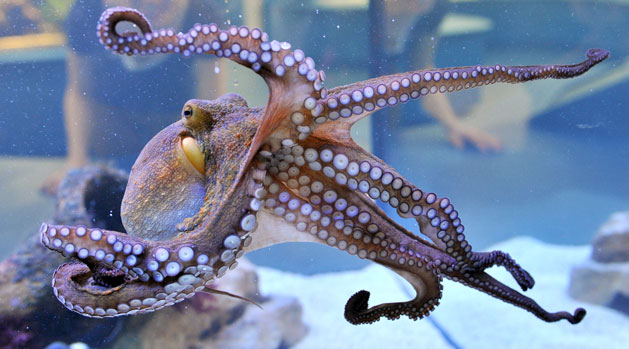Octopus tentacle inspires new flexible tool for surgeons
Robotic arm can transform from a bendable to rigid instrument, setting it apart from other surgical tools

A free daily email with the biggest news stories of the day – and the best features from TheWeek.com
You are now subscribed
Your newsletter sign-up was successful
The flexible tentacles of an octopus have inspired a new surgical device designed to access remote parts of the body.
Designed by a group of researchers from Italy, the robotic arm can transform from a bendable to rigid instrument, setting it apart from traditional surgical tools.
Like the tentacles of an octopus, which have no rigid skeletal support, the device can twist and stretch in any direction and at any point along its arm. This helps it to operate around soft organs without damaging them.
The Week
Escape your echo chamber. Get the facts behind the news, plus analysis from multiple perspectives.

Sign up for The Week's Free Newsletters
From our morning news briefing to a weekly Good News Newsletter, get the best of The Week delivered directly to your inbox.
From our morning news briefing to a weekly Good News Newsletter, get the best of The Week delivered directly to your inbox.
"It is believed the device could reduce the number of instruments, and thus entry incisions, necessary in surgical operations, with part of the arm being used to manipulate organs whilst another part of the arm operates," says Phys.org.
The robotic arm, which was presented today in the journal Bioinspiration and Biomimetics, was tested out on water-filled balloons simulating human organs.
Dr Tommaso Ranzani, lead author of the study, said: "Traditional surgical tasks often require the use of multiple specialised instruments such as graspers, retractors, vision systems and dissectors, to carry out a single procedure.
"We believe our device is the first step to creating an instrument that is able to perform all of these tasks, as well as reach remote areas of the body and safely support organs around the target site."
A free daily email with the biggest news stories of the day – and the best features from TheWeek.com
Researchers from the Sant'Anna School of Advanced Studies created the device entirely out of soft materials and use "granular jamming" to make it rigid. This stiffening process has been compared to that seen in vacuum-packed bags of rice or coffee, where particles act like a fluid but lock into a solid-like state when a vacuum is created.
The study notes that elephant trunks, squid tentacles and snakes have also been widely considered as models for innovative robotic devices in areas such as medicine, search and rescue, disaster response and human assistance.